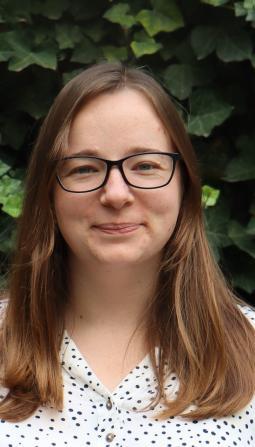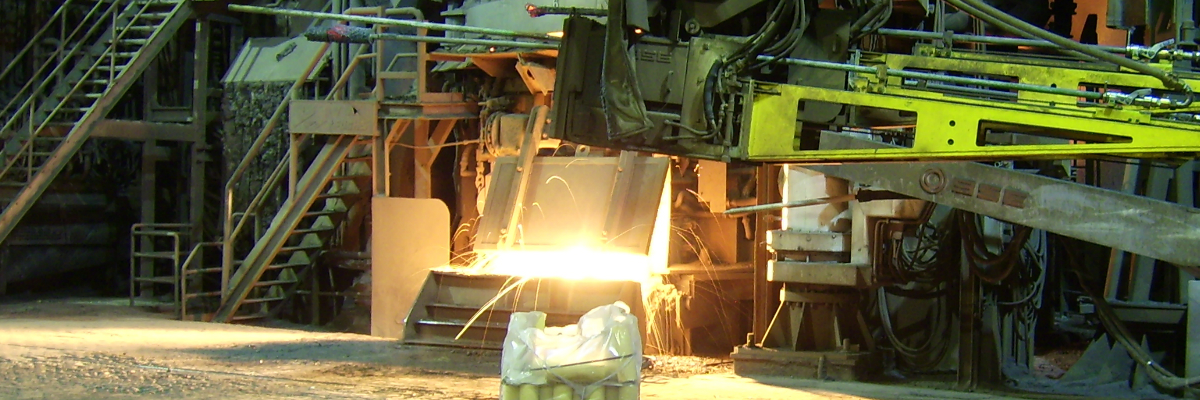
6th European Academic Symposium on EAF Steelmaking (EASES 2025)
The Laboratory of Control Systems and Cybernetics at the University of Ljubljana and the Department for Industrial Furnaces and Heat Engineering at RWTH Aachen University are organising the:
6th European Academic Symposium on EAF Steelmaking – EASES 2025
University of Ljubljana
Ljubljana, Slovenia
11-13 June 2025
The European Academic Symposium on EAF Steelmaking is focused on researchers and doctoral candidates in academia, research and technology organisations and companies with the topic of EAF steelmaking and technology. It will allow the researchers and PhD students to present and discuss about their current research projects on the EAF process on topics like:
- Efficiency and optimisation
- Process control, digitalisation and sensors
- CO2 emission reduction and environmental impact
- Process modelling and simulation
- Scrap treatment and control
- Alternative/new charge materials (DRI/HBI/…)
- Slag and by-products engineering, processing and valorisation
- Production of new steel grades
- Important dates
The call for papers is expected in late summer 2024.
Registration for the symposium will open in February 2025.
To be kept up to date with the latest news from the EASES 2025, you're invited to complete the online form at https://www.eases.rwth-aachen.de.
To learn more, click here.
- 11/06/2025 - 09:00 - 13/06/2025 - 17:00
-
University of Ljubljana
Kongresni trg 12
1000 Ljubljana
Slovenia - Bostjan Sinkovec
-
Working Group
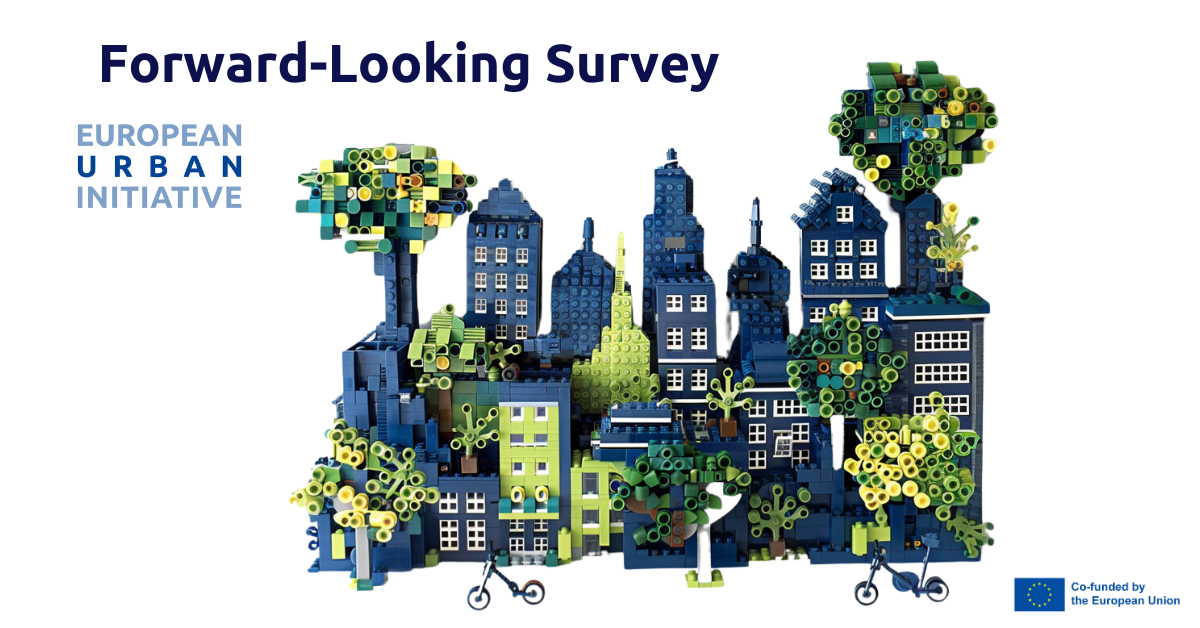
The Forward-Looking Survey - European Urban Initiative
The European Urban Initiative (EUI) has launched a forward-looking survey to gather vital insights from urban practitioners and policymakers across Europe. The objective of this survey, hosted on Portico, is to consult cities and all relevant stakeholders to identify key trends, challenges, knowledge gaps and support needs in the field of sustainable urban development in the European Union. In this way, the European Commission and the EUI Entrusted Entity will be able to gain a deeper understanding of the emerging dynamics and needs of urban areas and ensure that EUI activities and services are aligned with them.
This survey represents a unique opportunity to express your views and impact the content and strategic direction of EUI activities, which will inform the urban dimension of EU Cohesion Policy and beyond.
Learn more and access the survey here.
- Daniele Ruggiano
- 26/06/2024
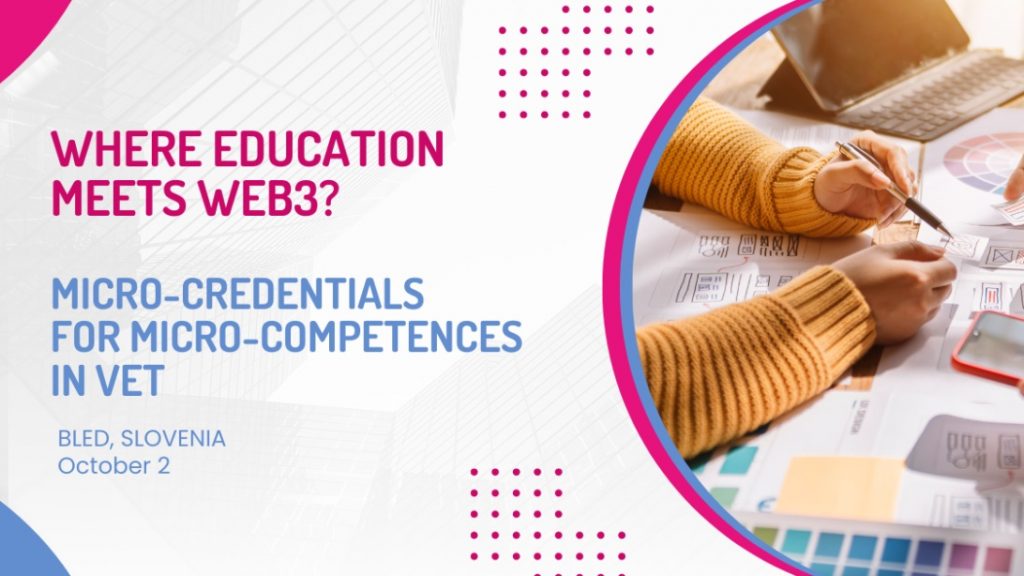
Where Education Meets Web3
The University of Ljubljana is organizing an event entitled "Where Education Meets Web3," scheduled for 2 October 2024 in Bled, Slovenia. The event will focus on the impact of Web3 technology on quality assurance in higher education. Please be informed that the agenda is preliminary and formats of some sessions may slightly change.
Key discussions will focus on strategic decisions essential for adapting to upcoming legislation, such as:
- Council Recommendation on micro-credentials for lifelong learning and employability (June 16, 2022);
- The European Parliament’s resolution to create a European Education Area by 2025;
- eIDAS2 Compliance and GDPR in line with EBSI regulations.
Key Topics:
- Development of micro-courses for VET (vocational education and training) aligned with industry needs;
- Strategies for tackling dropout rates and making the educational process engaging and effective;
- European Mobility Programs;
- Demonstration of new technologies planned for implementation (here Web3 will be involved).
The agenda of the event has an esteemed lineup of speakers, including representatives from:
- Higher Education Directorate of the Republic of Slovenia
- Member of INQAAHE and THEQC’;
- President of the Programme Committee for Micro-credentials at the University of Ljubljana;
- European Student Union members;
- OECD members;
- Member of Chamber of Commerce and Industry of Slovenia.
This event is organized with the help of Data Trust, a national hub, that connects and supports business and technological expertise, technologies, and best practices.
To learn more about the event, click here. To register for the event, click here.
Additionally, if you need more detailed information about the event, do not hesitate to reach out by contacting Mr. Bostjan Sinkovec via bostjan.sinkovec@sbra.be
The University of Ljubljana has extensive expertise in developing micro-credentials for micro-courses, having been heavily involved in the ESSA project. The University of Ljubljana is at the forefront of offering accredited micro-courses, complemented by micro-credentials in both paper and digital formats, eligible for up to 6 ECTS points. The University of Ljubljana is currently in the accreditation and verification process with ASIIN, which could make it one of the first universities to have our courses listed in the EQAR’s DEQAR database.
As new regulations on lifelong learning are emerging, the University of Ljubljana is in a strong position to share its knowledge with other universities, offering insights, sharing its experiences, and providing guidance on compliance with European Commission standards and regulations. Therefore, the agenda is aligned with the European Quality Framework and the work of accreditation organizations across Europe.
- 02/10/2024 - 09:00 - 02/10/2024 - 17:00
-
Bled Rose Hotel
Cesta svobode 8
4260 Bled
Slovenia - Bostjan Sinkovec
-
Working Group
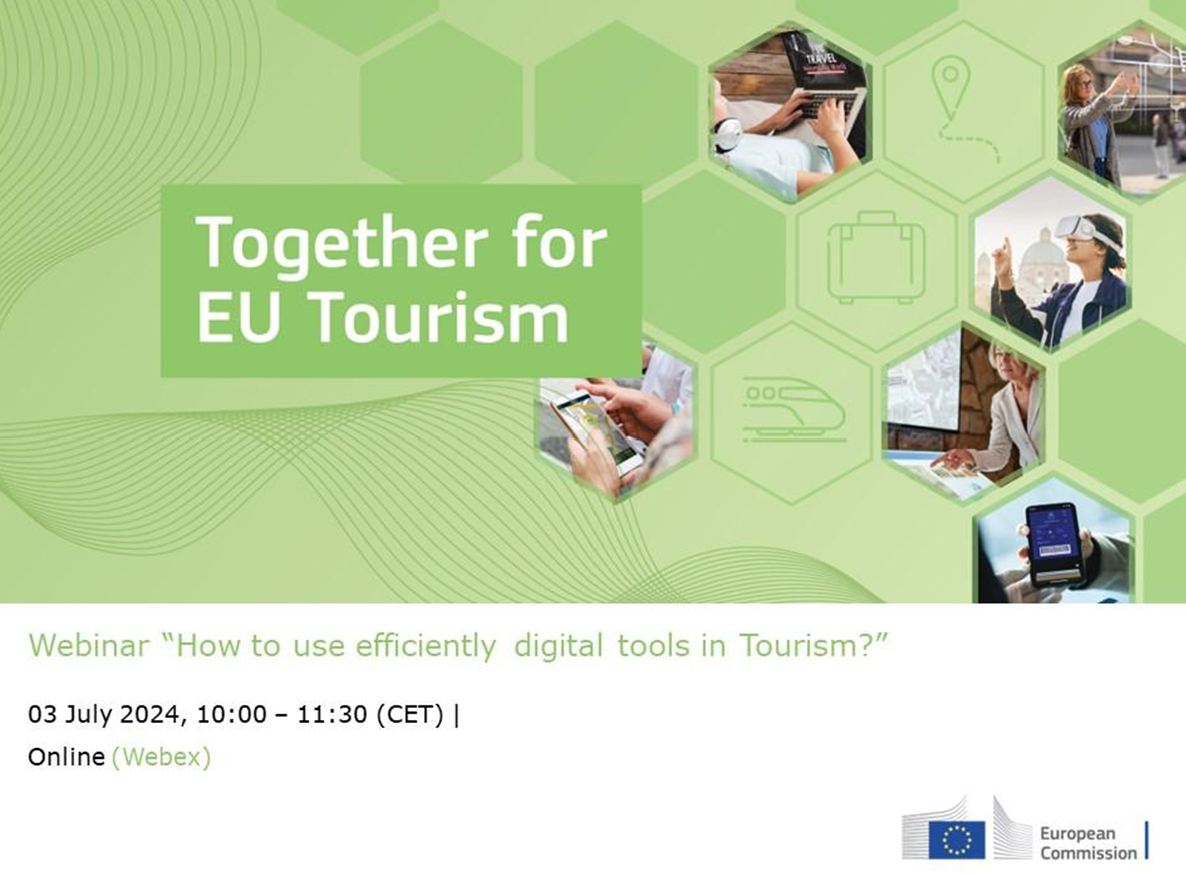
"How to use efficiently digital tools in Tourism" - Together for EU Tourism
In today's rapidly evolving tourism landscape, the effective utilisation of digital tools is crucial for staying competitive. This webinar delves into essential strategies and innovative digital solutions that not only streamline operations and enhance customer engagement but also emphasise the importance of innovation and boldness in adopting new technologies. Join us to explore how embracing cutting-edge solutions can revolutionise your approach to tourism management and marketing.
Objectives and Discussion Topics:
The primary objective of this webinar is to equip participants with actionable strategies and insights to maximise the efficiency and effectiveness of digital tools in tourism management. Through real-world examples and expert guidance, attendees will gain a comprehensive understanding of leveraging technology to enhance visitor experiences and operational outcomes in the tourism sector.
Discussion topics:
- Measuring the impact of events: This topic will explore methodologies and tools for quantifying the economic, social, and environmental impacts of tourism events, providing attendees with practical frameworks to assess and optimise event outcomes effectively.
- Visualizing tourism management: Delving into data visualisation techniques and digital platforms, this session aims to illustrate how graphical representations can aid in understanding visitor flows, resource allocation, and market trends, empowering tourism professionals to make informed decisions for sustainable growth and enhanced visitor experiences.
Target audience: Tourism industry stakeholders, including national, regional and local authorities, destination management organisations, academia, and NGOs interested in the use of digital tools in the tourism sector.
To register for the event, click here.
More information regarding the agenda can be found in the document attached to this event.
The webinar is open to all interested participants, so we encourage you to share the registration link with your network.
- 03/07/2024 - 10:00 - 03/07/2024 - 11:30
- This meeting will take place online
- Daniele Ruggiano
-
Working Group
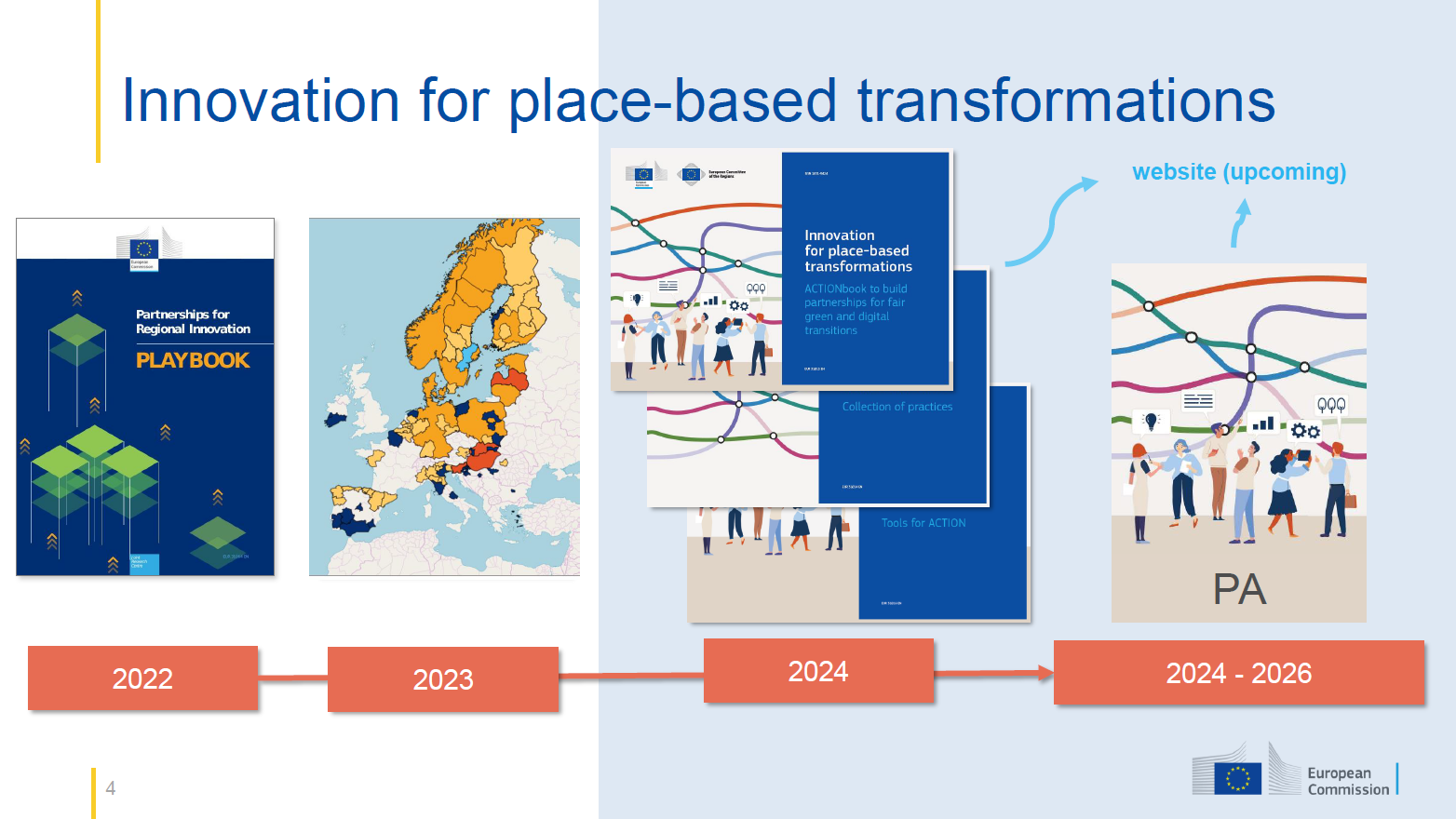
New EU Preparatory Action on innovation for place-based transformations
Following the developments of the Partnerships for Regional Innovation (PRI) initiative led by the Joint Research Centre (JRC) of the European Commission and the European Committee of the Regions in 2022-2023 as a new approach to place-based innovation policy building on positive experiences with smart specialisation strategies (S3), the JRC has just shared the news about a new EU Preparatory Action (PA) on innovation for place-based transformations.
The first public announcement of the PA and its related opportunities was made during the ERRIN Smart Specialisation Working Group meeting on 25 June.
The new PA is endorsed by the European Parliament and will be based on the experience of PRI. It will be challenge-oriented and driven by the ACTIONbook published by the JRC in January 2024 as a comprehensive hands-on resource with practices and tools to empower local, regional and national stakeholders across Europe to drive societal well-being and climate-resilient development. The Action will run from 2024-2026 and offer a combination of awareness raising, capacity building and experimentation activities to all interested territories of EU Member States and EU Associated Countries. The aim is to facilitate and promote transformative innovation approach across the participating territories and inspire further collaboration.
The participation in the PA will be based on a call for Expressions of Interest, expected to launch in October 2024 and to stay open for approximately five weeks. An info session is planned to be organised around the time of launching the call.
In the meantime, all territories are invited to share ideas and suggestions to help define the PA process, including the approach to awareness raising, capacity building and experimentation. All feedback can be sent to JRC-PRI-Pilot@ec.europa.eu .
During the ERRIN Smart Specialisation Working Group meeting on “S3 and PRI – the way ahead” on 25 June members received first-hand details about the new PA from the JRC team and contributed to defining the process. The meeting featured as well regional insights from Ostrobothnia and Navarra as participants of the PRI Pilot Action held in 2022-2023 and an interactive discussion. ERRIN members can find the presentations from the meeting with more details on the PA, specificities of the upcoming call for EoI, and practical added value of PRI linking e.g. to developing Regional Innovation Valleys on the event page.
Stay updated
More information about the PA will be shared in due course on the new website prepared by the JRC, which should accompany territories towards innovation for place-based transformations. It will act as a hub of resources to empower local, regional, and national stakeholders across Europe to achieve their desired transformations, aligning EU priorities with local strengths, challenges and needs. In parallel, stakeholders are encouraged to consult the S3 Community of Practice S3 CoP website which serves as a central information hub for smart specialisation for EU regions, and the S3 Platform, which now focuses on smart specialisation in non-EU countries, offering a global perspective.
In the meantime, a revamped monthly JRC Transforming territories newsletter is available (continuing from the previous JRC Smart Specialisation newsletter), curating content from several teams and projects to support place-based decisions on transformative innovation, territorial development, sustainability, entrepreneurial ecosystems and more. You may find the latest issues here and subscribe here.
You can also follow the Transforming territories account on the X platform here.
Background
The Partnerships for Regional Innovation (PRI) initiative was officially launched by JRC and CoR in March 2022 as a new approach to place-based innovation policy, building on positive experiences with smart specialisation strategies (S3). Following an open call for participation and publication of the PRI Playbook in May 2022, over 45 ERRIN members were engaged in the PRI Pilot Action between May 2022 and June 2023. The ambition was to test tools for better coordination and directionality of regional, national and EU innovation policies towards implementation of the twin transition and tackling the innovation divide in the EU.
ERRIN has been actively supporting PRI, promoting engagement and contributing to shaping the way forward for the initiative through organising dedicated events and participating in debates. We will now continue to facilitate regional involvement in the PA.
- Ewa Chomicz
- 25/06/2024
-
Working Group
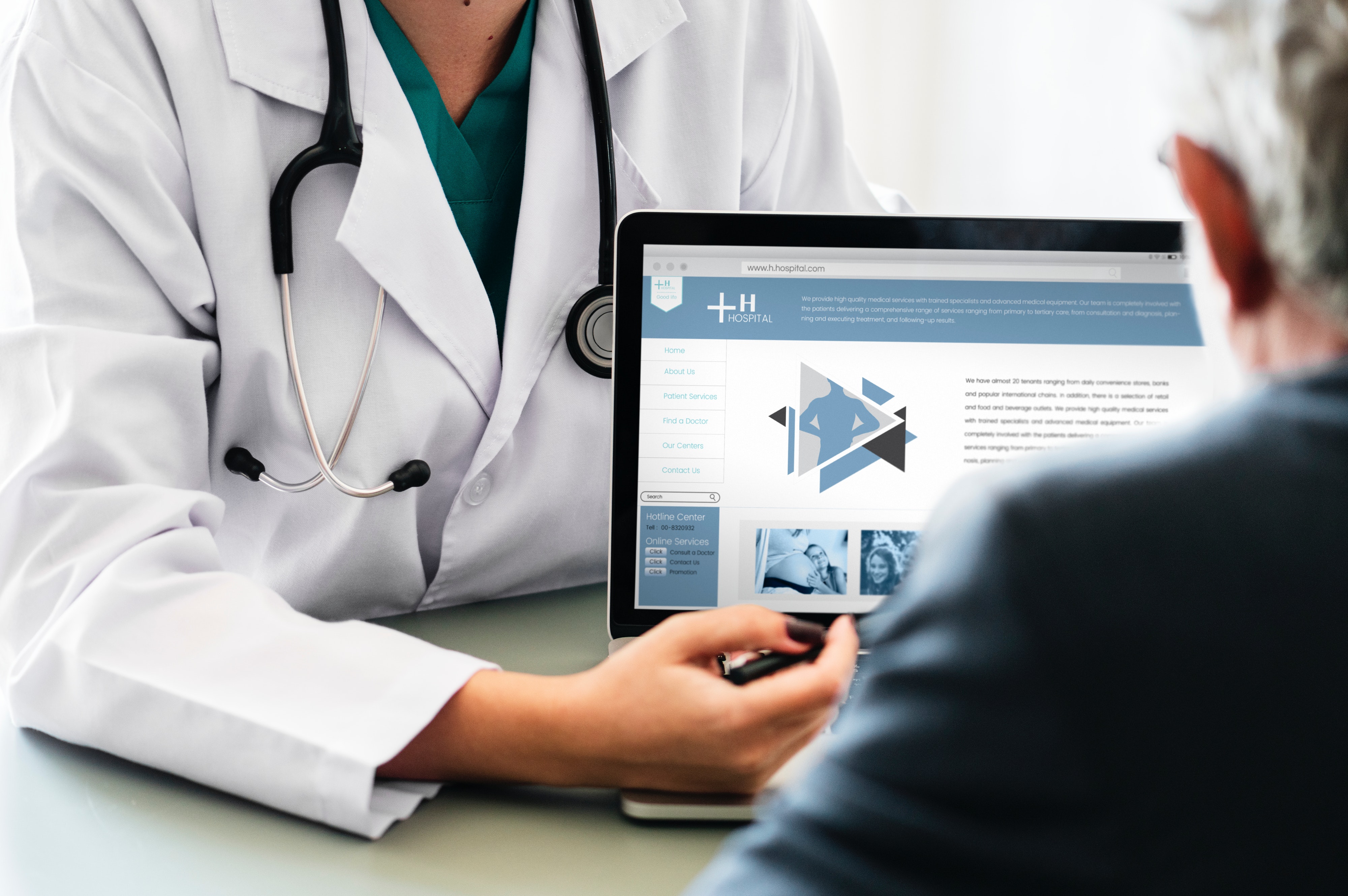
ERRIN's Health Working Group is looking for a new Leader
ERRIN’s Health Working Group is looking for a new leader to join the leadership team composed of Stavanger Region European Office, Greater Copenhagen EU Office, Government of Navarra and Île-de-France Europe.
ERRIN’s Health Working Group (WG) supports members with early intelligence and regular updates about EU-level health policy-related issues, regulations, EU programmes and their funding opportunities. Creating opportunities for interregional cooperation in the Health area is one of the WG’s main objectives. The WG is also a vehicle for networking, profile raising and promoting good practices and projects among health stakeholders in the ERRIN regions.
The Health WG organises 4-5 events per year on themes highlighted by the membership, as well as project development sessions when opportunities arise. The Working Group Leaders may be called upon to represent ERRIN at events and to provide input to ERRIN’s Health Policy work.
The Health Working Group is looking for an individual with experience and expertise in health policy to join the team. Among other criteria, we will consider the capacity and portfolio of the candidate and the member organisation (e.g., involvement in related EU projects or initiatives), as well as geographical and gender balance among leaders.
To express your interest, please email lucy.hammond@errin.eu, stating your professional motivation and what you would like to achieve as a Working Group leader by 28 June 2024 EOB. Please feel free to reach out to one of the current Working Group Leaders to find out more about the role.
- Lucy Hammond
- 25 June 2024
Lucy Hammond
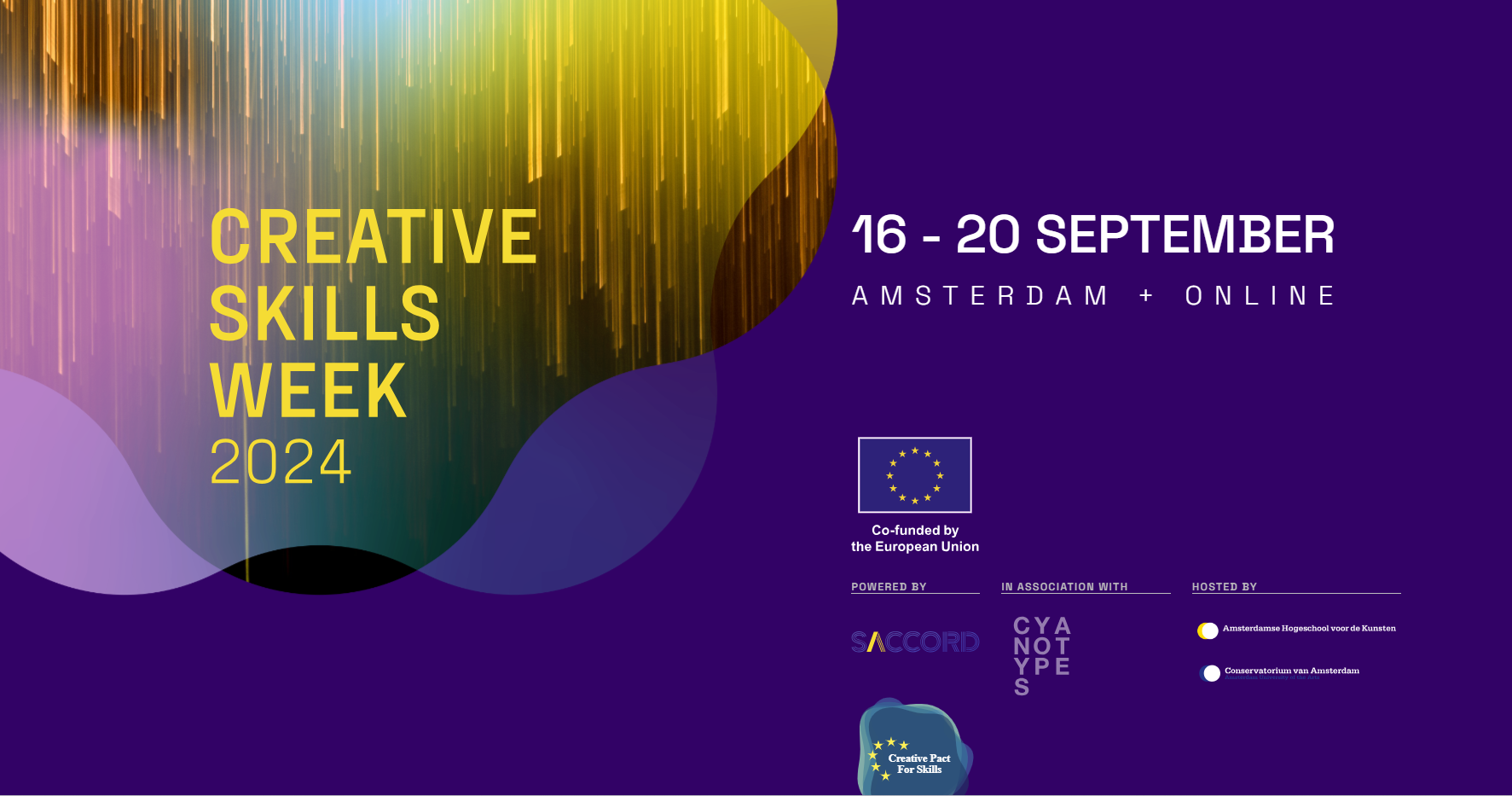
Creative Skills Week 2024
The Creative Skills Week 2024 gathers third-level educators, university leaders, vocational education and training (VET) providers, industry partners, SME’s and policymakers dedicated to the future of the Cultural and Creative Sector Industries (CCSI).
This year the Creative Skills Week will take place in Amsterdam, around several cultural locations, and will consist of a Main Programme (18 – 19 Sept) and a Satellite Programme (16, 17 & 20 Sept). The Creative Skills Week 2024 is a unique opportunity to shape and steer the discussion around skills for Creative and Cultural Sector Industries' (CCSI) fragmented ecosystem. To achieve this, all stakeholders need to be involved and help address skills gaps, identify opportunities for upskilling, and start shaping strategic skills for future creatives.
Explore common ground for the cultural and creative ecosystem throughout Europe, develop local and European solutions which address urgent challenges within the CCSI, learn how local communities can strengthen their work and enhance collaboration within their local ecosystems, contribute to the expansion of creative skills training beyond systems and sectors to secure sustainable futures in the CCSI.
You can learn more about the programme and register here.
- 16/09/2024 - 09:00 - 20/09/2024 - 18:00
- This meeting will take place online
- Francesca Pozzebon
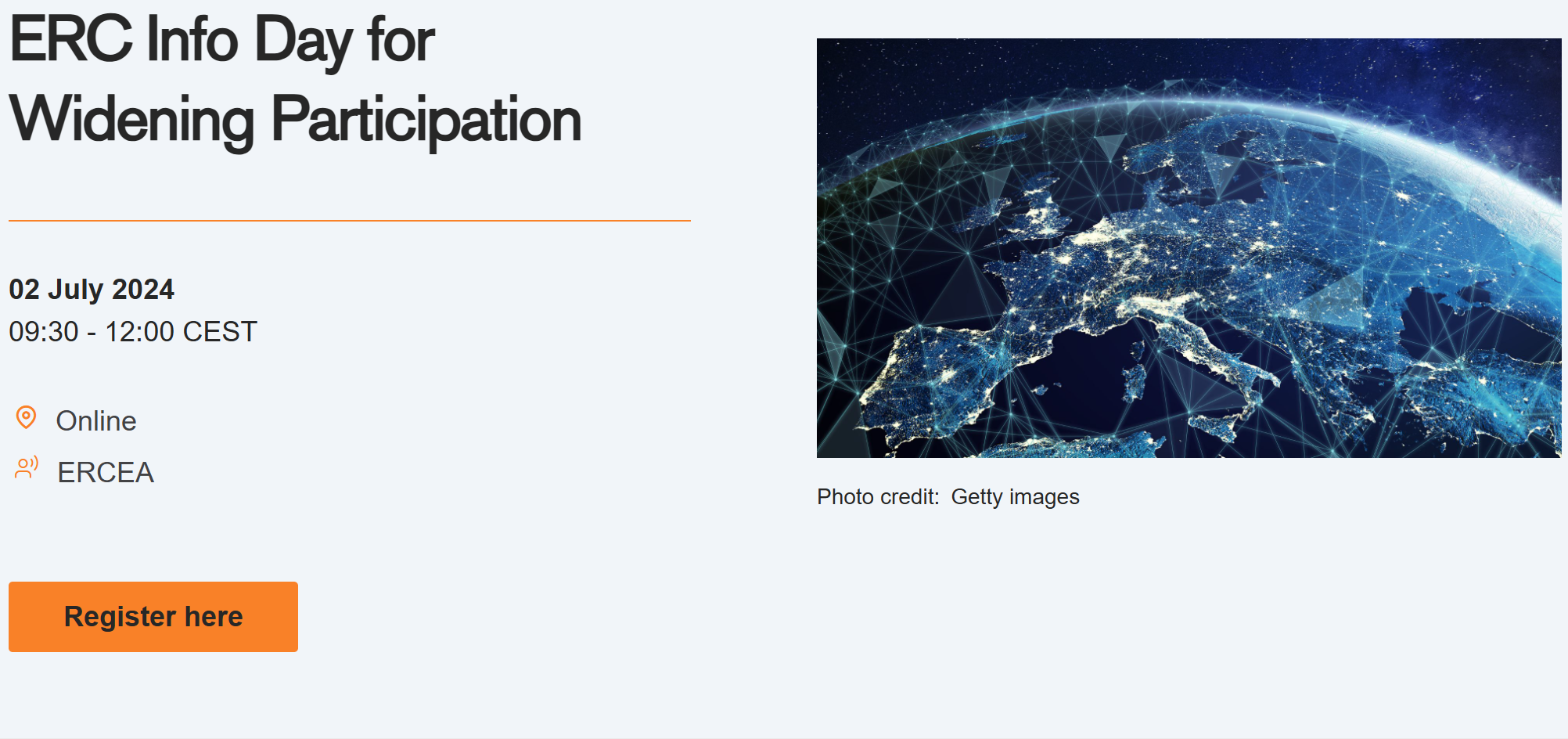
European Research Council Info Days
On 2 July, the European Research Council will host its first Info Day dedicated to research support teams in widening countries. This is a response to the limited capacity of universities and research centres to provide support to potential applicants.
Research support teams play a key role in applying for ERC grants. They can help researchers and scholars build competitive grant proposals. Because of this, the ERC decided to host an info session aimed at helping project managers, grant officers and other staff write and submit grant proposals.
This info day is specifically designed for the staff based in countries hosting few ERC grantees, i.e. countries covered by policy measures to widen their participation in Horizon Europe programme.
Registration is needed in order to attend.
To learn more about the event and to register, click here.
- 02/07/2024 - 09:30 - 02/07/2024 - 12:00
- This meeting will take place online
- Daniele Ruggiano
-
Working Group

S+T+ARTS Hungry Ecocities: Call for Artists in the Agri-food sector
Hungry EcoCities is launching the second call for artists, dedicated to developing innovative prototypes for products and services within the agri-food sector.
Hungry EcoCities is a groundbreaking initiative that seeks to develop responsible, art-driven solutions for the agri-food industry using AI-enabled technologies. This program will host up to 20 S+T+ARTS residencies aimed at prototyping these solutions for end-users. These “experiments” give an opportunity to think differently, to bridge perspectives, and to give a voice to unheard actors.
To select up to the 20 art-driven experiments, two open calls have been launched addressing specific topics. The first call, “Humanizing Technology Experiments within AI Breakthrough Technology Domains,” has selected 9 artists who will use artistic means to explore and prototype AI applications in the agri-food sector, which can be accessed and tested within the Paths-to-Progress experiments.
The second call, “paths to progress experiments to have AI enabled use scenario prototypes tested in real environments,” will select up to 10 teams, each composed of one end-user/SME from the agri-food sector and one artist, who will work together to address specific local challenges for artist-driven experiments conducted in local test sites. The selected teams will work together on a proposal to tackle a challenge in a concrete test site provided by the end-user (e.g., supermarket, bio farm, community garden, production facility, restaurant).
The Hungry EcoCities residencies will be:
- conducted in close collaboration with one of the hosts Art and Design studios Studio Other Spaces GMBH (SOS), with Sebastian Behmann and Olafur Eliasson, Carlo Ratti Associati S.R.L.(CRA), with Monika Löve and Daniele Belleri, and Controlled Environment Agriculture network organization EatThis (Stichting Network/NTWK), with Stephan Petermann, Aart van den Bos and Rem Koolhaas;
- supported by AI and digital tech researchers at KU Leuven institute Leuven.AI (KUL) and Brno University of Technology (BUOT), along with AgriTech researchers at Mendel University in Brno (MNDLU);
- mentored by the Institute for art-driven innovation In4Art BV.
Learn more about the open call and apply here.
- Francesca Pozzebon
- 24/06/2024
-
Working Group
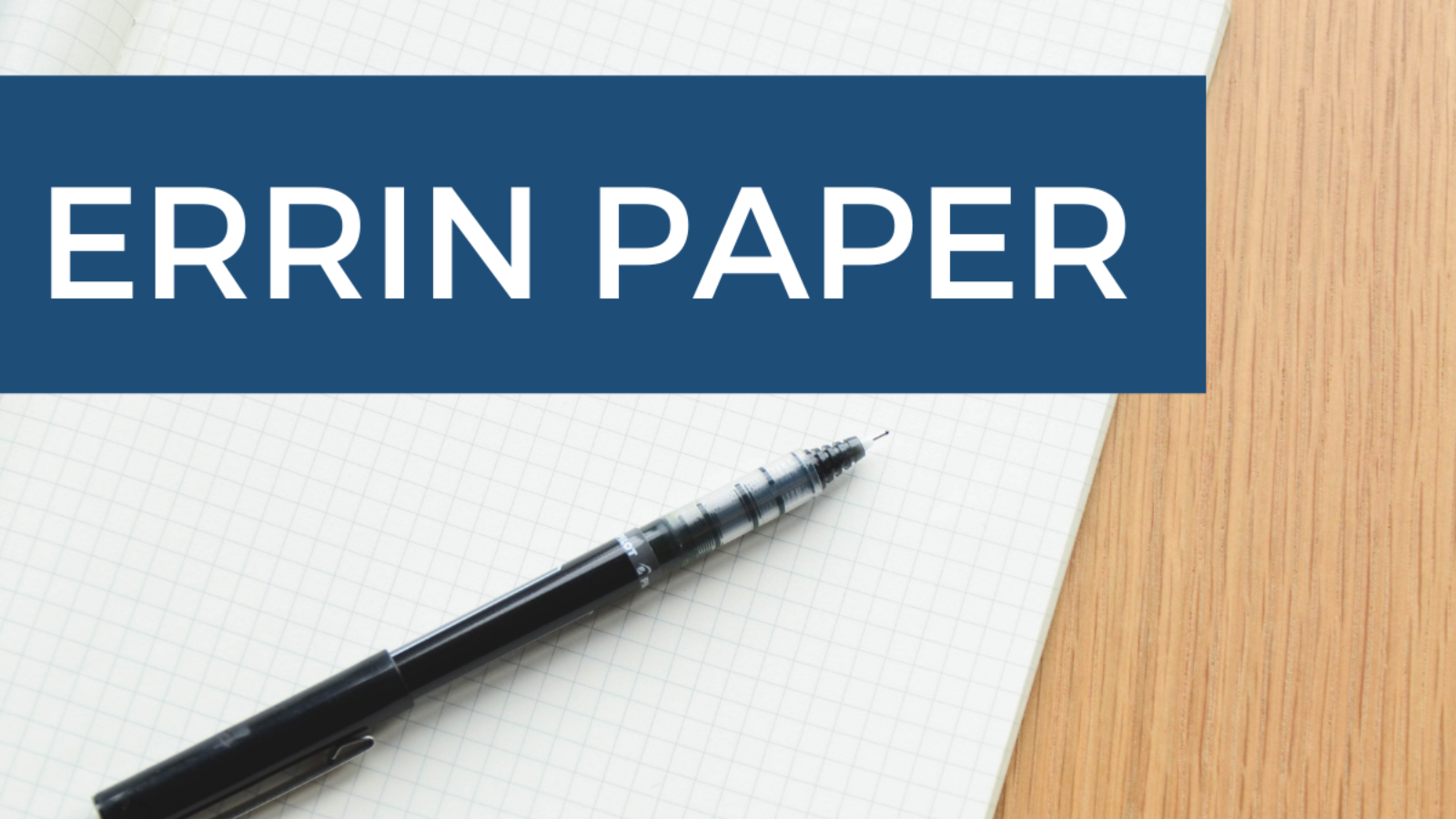
ERRIN two-pager for European decision-makers
Following the European elections on 6-9 June 2024, the European Parliament and the European Commission will undergo political changes at a time when new EU policy priorities are emerging in the evolving geopolitical context.
As the new political cycle begins, European competitiveness, strategic autonomy and addressing the feeling of disconnect between citizens and the EU are among the major issues on the table. Fostering collaboration in R&I is key to helping Europe prosper in the wider geopolitical context. At the same time, maintaining the link with the needs and realities of territories is crucial to ensure optimal impact of policies and keeping people at the centre of the European project.
In this context, ERRIN is pleased to share a two-pager for the incoming European decision-makers, aiming to present the network and our value to the new MEPs, raising a voice for the importance of place-based R&I in the changing landscape. The document was co-created with the ERRIN Management Board and launched during the ERRIN Spring Annual General Meeting on 20 June.
We encourage all ERRIN members to share the attached two-pager with their new MEPs to introduce ERRIN and the value of place-based R&I.
- Ewa Chomicz
- 21/06/2024

